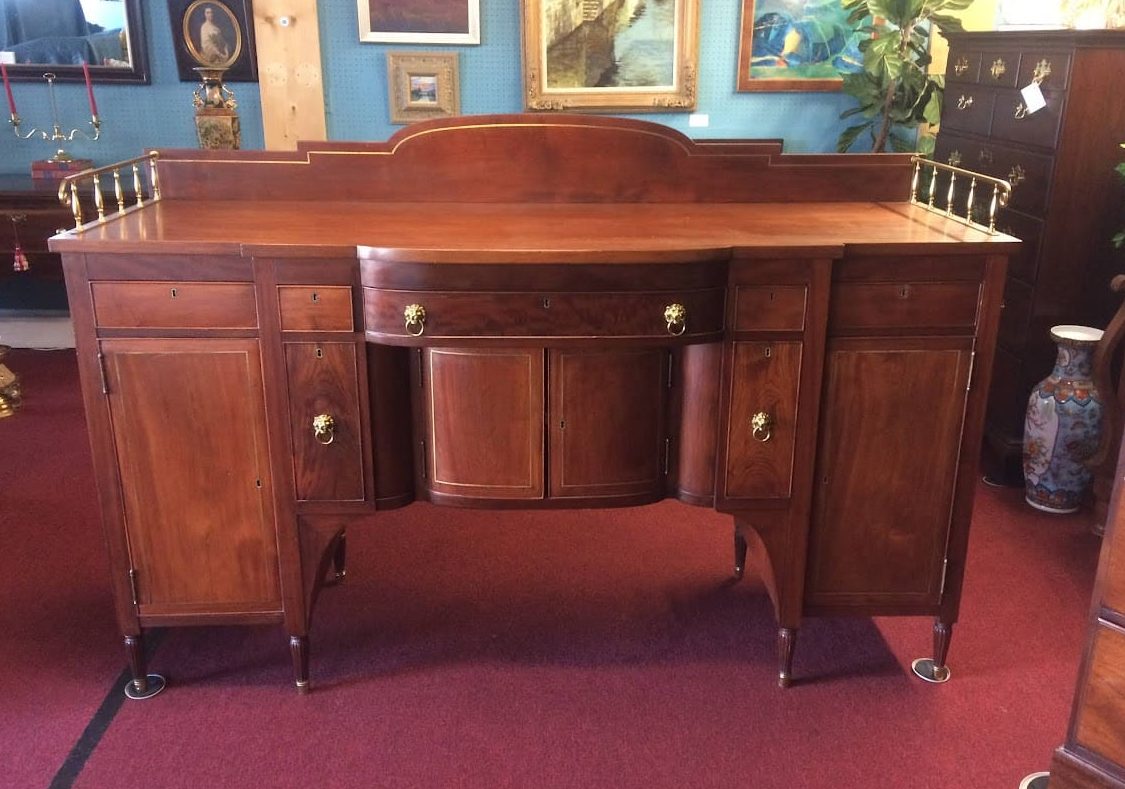
Antique furniture has long been a popular choice among collectors and enthusiasts. Whether you’re a vintage lover or simply someone interested in the history and craftsmanship of furniture, you may be wondering whether antique pieces hold any significant value. In this blog post, we’ll explore the factors that determine the worth of antique furniture and provide tips on how to assess the value of vintage pieces.
What Makes Antique Furniture Valuable?
Age
The age of a piece of antique furniture is one of the most significant factors that determine its worth. Generally, the older the furniture, the more valuable it is likely to be. However, not all old furniture is valuable, and not all valuable furniture is necessarily old. For instance, an antique piece made in the 19th century may be worth more than a piece made in the 17th century if it is more rare, more popular, or in better condition.
Condition
The condition of a piece of furniture is another critical factor in determining its value. Antique furniture that is in excellent condition with no or minimal damages fetches a higher price than those with significant damages, such as cracks, chips, or missing parts. Therefore, preserving the original condition of antique furniture is essential to its overall value and appeal to collectors.
Rarity
Rarity is another important factor in determining the value of antique furniture. Rare pieces that are difficult to find or were made in limited quantities can be highly valuable. For example, a piece of antique furniture made by a famous craftsman or artisan who only produced a few pieces can have a much higher value than a more common piece. Similarly, furniture with unique or unusual designs can also be considered rare and thus valuable.
Provenance
Provenance refers to the history of a piece of furniture, including its ownership and past locations. Antique furniture with a known and documented history typically holds more value than pieces with an unknown or undocumented history. Provenance can add to the interest, rarity, and historical significance of a piece, making it more valuable to collectors.
How to Assess the Value of Antique Furniture?
Identify the Style
The style of antique furniture is one of the most crucial factors when assessing its value. There are various styles of antique furniture, including Queen Anne, Chippendale, Sheraton, Empire, and Victorian. Each style has distinct features, such as ornate carvings, intricate details, and specific materials used. By identifying the style and features of a piece, you can get a better idea of its age, rarity, and value.
Research Similar Pieces
Researching similar pieces of antique furniture can help you understand the approximate value of your piece. You can use online auction sites, antique dealers, and price guides to find comparable pieces. It’s essential to compare similar items in terms of style, age, condition, and rarity to get a more accurate estimate of the value.
Consult with Experts
Antique furniture experts can help you assess the value of your vintage pieces. An appraisal from a certified appraiser can provide you with a valuation of your antique furniture and offer advice on preserving and restoring the item. You can also consult with antique dealers or collectors who specialize in your particular piece or style.
Consider the Market Demand
The current market demand is also a crucial factor in determining the value of antique furniture. Some vintage pieces may be more popular and in demand than others, leading to higher prices. For instance, Mid-Century Modern furniture has become increasingly popular and in-demand in recent years, resulting in a surge in its value. Staying up-to-date with current market trends can help you make informed decisions about buying, selling, or preserving your antique furniture.
Conclusion
Antique furniture can hold significant value, depending on various factors such as age, condition, rarity, and provenance. If you’re interested in vintage pieces, researching and assessing their value can help you make informed decisions about buying, selling, or preserving them. Understanding the style and features of antique furniture, researching similar pieces, consulting with experts, and considering the market demand can all help you assess the value of your vintage furniture. Find antique furniture near you.
